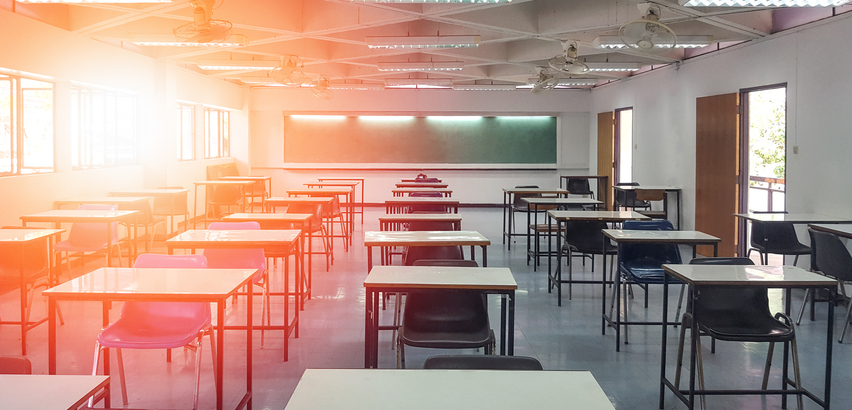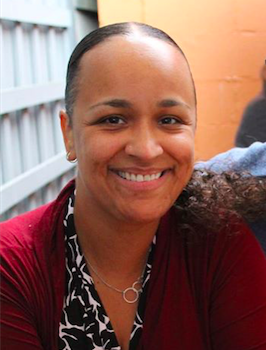UTLA (United Teachers Los Angeles) and CTU (Chicago Teachers Union) are the second and third largest public education locals in the country, with 34,000 and 28,000 active members. Our unions’ close relationship over the past 15 years has been critical to our ability to make bold changes as we continue to evolve, consult, and learn from each other. This includes developing the infrastructure and governance models that shifted the power to members at our worksites; building strong parent/community coalitions and partnerships; bargaining for the common good; and changing the narrative around public education to highlight underfunding, school closures, and privatization instead of blaming and devaluing educators. We have faced unique challenges, but our grassroots organizing and commitment to parent/community collaboration have set us on similar paths over the years.
In March 2020, educators across the country faced an unprecedented and unexpected global pandemic for which there was no preparation or plan. Both CTU and UTLA represent cities with large numbers of Black and Brown students — many of whom live in multi-family units or are experiencing homelessness, have family members who are essential workers, or have special education needs. Our students were thus at high risk of exposure to COVID.
This article covers our unions’ fight for the health and safety of our students, families, and members during the peak of COVID-19 — our successes, our challenges, and what we learned along the way. We write as two unionists who have been deeply involved in the bargaining and organizing of our unions over the past decade, including through our successful strike mobilizations in 2019. Our unions’ power comes from building with community allies, working in coalition, and taking bold collective actions toward a common goal of health and safety for our students, members, families, and community. During COVID, we found that our approach to organizing and structure building was able to withstand the global pandemic and right-wing attacks on teachers, but we had to adapt our tactics to continue to communicate and listen to members at a time when we could not meet in person.
LA and Chicago: The political context
What set Los Angeles apart from Chicago — and most of the nation — was the fact that UTLA and LAUSD collaborated to develop strong health and safety protocols. We still faced obstacles: business interests pushed for early reopening and right-wing groups like the Freedom Foundation (on behalf of anonymous parents) slammed the union with a lawsuit for not reopening schools earlier. Yet because of the strong relationships formed among parents, students, and community through the Reclaim Our Schools Los Angeles (ROSLA) coalition — built during our last strike — we held together to refuse to return to classrooms until necessary health and safety standards were put into place.
CTU faced the additional obstacle of mayoral control (versus an accountable elected school board like we have in LA). Chicago Mayor Lori Lightfoot resisted closing buildings, failed to meet promises of COVID testing and contact tracing, and refused to provide adequate vaccinations and PPE. Despite rising caseloads in March 2020, schools only closed due to a statewide order from the Governor over the Mayor’s objections. Throughout the pandemic, Lightfoot used her public health appointees to discredit CTU’s concerns about safety mitigations at schools, with the Chicago Department of Public Health director, Dr. Allison Arwady, claiming that schools are not a major driver of COVID spread, despite considerable evidence to the contrary.
UTLA and CTU strategy and tactics
The internal structures that our unions built during our strike preparations were effective as we transitioned to organizing over zoom, phone, and text. For UTLA, this included a chair and vice chairs at every school as well as Chapter Action Teams with a 10-to-1 communication structure. As a result, during COVID we were able to hold city-wide webinars that drew record numbers of members and leaders — keeping us organized and connected at a crucial moment when our members were going through personal hardship and trauma.
We were also able to rely on the Reclaim Our Schools Los Angeles coalition to mobilize Black and Brown parents to counter media reports on white, middle-class parents who opposed COVID testing, mandatory masking, and vaccination. The coalition also held four parent/community town halls with 500 participants to help us develop common good demands for our bargaining package.
In CTU, the bargaining team determined that member organizing and work actions would be the only way to force the Mayor and district leaders to implement additional safety measures. CTU also needed a strategy to address the district announcement in October 2020 that staff and students would return to schools in waves, beginning with paraprofessionals, pre-kindergarten teachers, and teachers in special education settings in the fall, followed by all elementary, middle, and high school teachers in the spring. This caused division among CTU members, as some members would be allowed to remain remote while others would be required to return to work.
To try to combat that division, CTU worked with rank-and-file members to hold regular webinars and press events, along with using the one-on-one communication structures at the school site through phone and text. But the divisions in the membership made it difficult to take collective action against the district. When CTU won an arbitration case that would have allowed paraprofessional members to work from home four days a week, only a small number of them resisted district pressure and refused to return. This taught us that we cannot rely on the law to keep us safe — collective action is critical to win.
Even as Omicron caused cases to spike in the winter of 2021-22, the Mayor continued to require in-person instruction, in spite of the fact that less than half of students were vaccinated and the positivity rate was 23.3%. Seventy-three percent of CTU members voted to temporarily teach remotely for a week (until January 18th) while students and staff received COVID-19 testing or until the positivity rates declined. In response, Lightfoot and CPS canceled all classes and locked educators out of online platforms. Dozens of individual members organized “teach-outs” — working outside in the snowy parking lots and greenways of their school buildings while teaching their students remotely — or engaged in coordinated refusals to return to in-person work. CTU also organized our largest car caravan of the pandemic. We threatened to escalate with citywide coordinated actions and refusal to return, forcing the district to bargain the first full safety agreement.
What UTLA and CTU learned during the pandemic
The work we have put into unifying our members, listening to their experiences, and adjusting our tactics accordingly allowed us to manage the health and educational crisis of a global pandemic. It was challenging because our members were going through so much, even to the point of leaving the profession, but organizing instills hope and taking action brings solidarity.
Both of our unions’ fights were possible because members had built active rank–and–file leadership before the pandemic. The pandemic increased the need for 1:1 calls, committee meetings, surveys, telephone town halls, members at the bargaining table, but it required learning how to do online webinars and electronic voting so thousands of members could continue to get information, share feedback, and engage in leadership. These digital tactics will help us refine our organizing going forward, but the pandemic showed that the basics of union organizing are more critical than ever to building power — especially in a time of crisis. Union leaders must listen to members, involve members at the bargaining table, constantly check sentiment, and help support structures where members have ownership and responsibility to be active leaders.
The pandemic also furthered our leaders’ dedication to allying with the community to fight for racial justice in our schools and communities. We cannot win for our students unless we are in coalition with families in the community on racial and social justice. Both CTU and UTLA supported the national racial uprising following the murder of George Floyd, including joining the #TeachtheTruth movement, but we’ve also faced resistance from some of our members. We will continue to educate and organize our own members to recognize our role in dismantling white supremacy.
The previous years of organizing work and the strikes in both UTLA and CTU laid the foundation for our unions to be strong enough to win safer schools during COVID. As right wing attacks on educators have intensified — including restrictions on what we teach — we’ve continued to build power by engaging and broadening our democratic processes. Even when we are not fully successful, militant radical unions are critical to fighting the attacks on our teachers, students, and communities.


